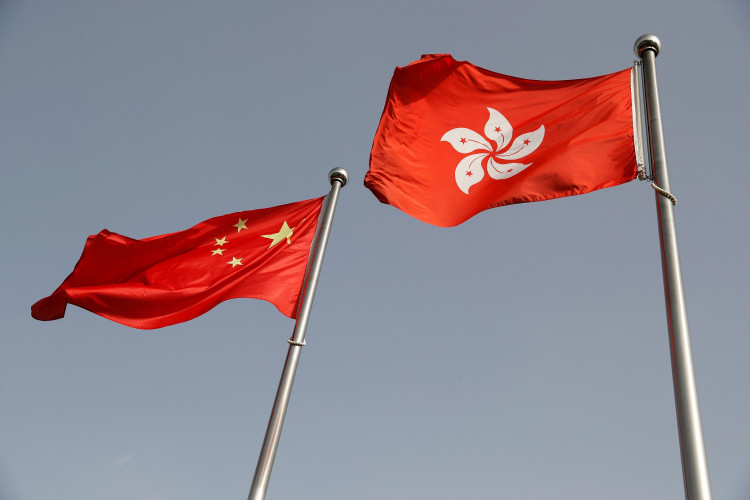Hong Kong migrants in the United Kingdom are eagerly embracing their newfound voting rights as the country gears up for its next general election. This surge in civic participation comes against a backdrop of complex emotions, with many expatriates grappling with the stark contrast between their current freedom and the tightening restrictions in their homeland.
Richard Wong, a 25-year-old who relocated to Britain two years ago, exemplifies this dichotomy. As he canvasses for a Labour Party candidate, Wong can't help but reflect on the irony of his situation. "Back in Hong Kong we tried so hard to get democracy and then lost it. And I moved here, and we are actually practicing democracy, but in a very different context," Wong told the Wall Street Journal. His involvement in the UK's democratic process is tinged with a sense of survivor's guilt, as he adds, "I still have friends spending their time in prison and I'm ... doing this at the other end of the world."
The influx of Hong Kong migrants to the UK is a direct result of the British government's response to Beijing's crackdown on dissent in the former colony. Since 2021, more than 180,000 Hong Kongers have taken advantage of a special visa program that grants them residency and voting rights in the UK. This policy, unique in its scope, allows these newcomers to immediately participate in the electoral process, a privilege not typically extended to other immigrant groups.
For many, like Carmen Lau, a campaign coordinator for Vote for Hong Kong 2024, this opportunity is not taken lightly. "I know the power of votes. I think if we have that power we should utilise it," Lau asserts. Her passion for democratic participation is informed by personal experience; Lau was elected as a Hong Kong district councillor in 2019, only to be later disqualified for refusing to take an oath of loyalty to the territory's mini constitution.
The upcoming UK election represents more than just a political exercise for these expatriates. It serves as a poignant reminder of what they've lost and what they're fighting to preserve. "The right to vote is precious, and more Hong Kong people are moving to the UK and we're concerned about China's control and spies, so there is a need to speak out," explains Kate, a 33-year-old Hong Kong migrant who requested anonymity due to fears of reprisal.
Despite the physical distance from Hong Kong, many in the community remain wary of Beijing's long reach. This apprehension is not unfounded, given the current state of UK-China relations. Recent accusations of Chinese intimidation of a foreign national on British soil, coupled with counter-claims of espionage, have heightened tensions and reinforced the expatriates' concerns.
These fears manifest in tangible ways within the Hong Kong community in Britain. At cultural events, attendees often don masks and shy away from cameras, worried that their participation might lead to harassment of family members still in Hong Kong. This climate of caution underscores the complex reality faced by these political refugees, who must balance their desire for civic engagement with ongoing concerns for their safety and that of their loved ones.
The British government's stance on the issue remains firm. A spokesperson for the Home Office reiterated the UK's commitment to supporting Hong Kong migrants, stating, "We stand by our historic responsibilities to the people of Hong Kong. Our bespoke immigration route provides a pathway to safety for those who need it."
As the election approaches, organizations like Vote for Hong Kong 2024 are ramping up their efforts to encourage participation. Their work goes beyond just getting out the vote; it's about helping these newcomers navigate the intricacies of British democracy and find their voice in their adopted home.
For many Hong Kong expatriates, the act of voting in the UK election is both a celebration of newfound freedom and a bittersweet reminder of the struggles that brought them here. As they cast their ballots, they carry with them the weight of their experiences and the hope for a future where democracy is not just a privilege but a universal right.






